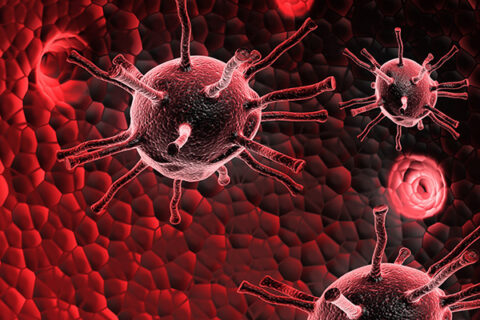New insights into pancreatic cancer could lead to improved treatment
Results of international research should improve patients' chances of survival
An international team of researchers involving members of Friedrich-Alexander-Universität Erlangen-Nürnberg (FAU) has made an important breakthrough in the classification of pancreatic cancer, opening up new possibilities for more effective treatment. The team involving Prof. Dr. Robert Grützmann, director of the Department of Surgery at Universitätsklinikum Erlangen, and Prof. Dr. Christian Pilarsky have identified four important subtypes of pancreatic cancer in a new study. Each subtype has its own unique clinical characteristics and is associated with a different chance of survival. Pancreatic cancer is currently the fourth most common cause of cancer-related death in western society.
Patients with pancreatic cancer currently have a poor prognosis
In a paper which has recently been published in the renowned journal Nature (volume 531, issue 7592), the researchers identify four subtypes of pancreatic cancer known as squamous, pancreatic progenitor, immunogenic and aberrantly differentiated endocrine exocrine (ADEX). These groups were determined on the basis of key characteristics of the tumours, including their mutation profile, gene expression and epigenetic changes. ‚Patients with pancreatic cancer currently have a poor prognosis with a five-year survival rate of less than five percent,‘ Prof. Grützmann says.
‚Silent‘ for up to 20 years
The disease progresses ’silently‘ within the pancreas for up to 20 years before patients experience symptoms and seek treatment. ‚Unfortunately, curative treatment can currently only be provided for a small number of those diagnosed with the disease,‘ the Erlangen-based surgeon explains. A multi-modal treatment concept involving an operation is the only form of intervention that can increase the chances of long-term survival. However, there are currently no specific therapies for the different types of pancreatic cancer.
It is essential that we continue to optimise the molecular analysis of pancreatic cancer
‚It is essential that we continue to optimise the molecular analysis of pancreatic cancer in order for us to provide patients with more targeted treatment,‘ emphasises Prof. Grützmann, who is also Chair of General and Abdominal Surgery at FAU. ‚The four subtypes that we have identified represent a new classification of the disease. This will enable new information to be gathered on possible individualised treatments.‘ Prof. Pilarsky, who will be joining the surgical researchers at Universitätsklinikum Erlangen on 1 April 2016, says, ‚We will work hard to apply these results to clinical practice as they could also be an important starting point for new treatment strategies.‘
Further information for patients is available by calling +49 800 8510085 (CCC Erlangen-EMN’s hotline).
Further information:
Prof. Dr. Robert Grützmann
Phone: +49 9131 8533201
chir-direktion@uk-erlangen.de
BU: Cancer cells (image: Colourbox.de)
